If you’re like most people, then you’re often looking for ways to keep your hair from thinning, becoming brittle, or going gray. A survey performed by a hair loss clinic in 2013 found that 94% of men are worried about losing their hair. That’s more men than are afraid of impotence, gaining weight, or even losing their teeth.
Fortunately, there are plenty of ways to prevent or reverse hair loss. Vitamins, whether found in food or supplements, are one of the best. Vitamins are critical to hair growth. Knowing how to harness them could mean the difference between keeping your healthy head of hair, or taking up hat collecting.
Table of Contents
How the Body Creates Hair
Hair is made of a substance called keratin, the same stuff that forms finger and toenails, as well as animal hooves, horns, and claws. Keratin is a very strong protein, able to stand up to the stresses of the outside world without becoming damaged or breaking down.
Whether on the scalp or elsewhere on the body, human hair is created by hair follicles. Follicles are tiny bulb-like structures just under our skin. They continually spin keratin into hair, fueled by blood vessels that bring nutrients, vitamins, and hormones. Together, these substances determine the thickness of hair, the speed at which it grows, and other factors like its color.
How Vitamins Help Hair Grow
Although it’s common knowledge that hair is made of dead cells, that’s only partially true. While hair remains inside the follicle, it’s as alive as any other part of the body. It only “dies” when it grows out past the skin.
While hair is alive and being formed, it needs to be supplied with nutrients just like every other organ. The nutrients brought to hair by the blood come from food, and so what we eat determines the health of our hair. That’s why vitamins are so important for hair growth.
Just as you might eat protein to fuel muscle growth, or calcium to help your bones, it’s important to take in the right vitamins to help your body create hair. If you don’t, then you suffer a greatly increased risk of thinning or balding, going gray, or producing brittle, dry hair.
The Best Hair Vitamins
Hair benefits from most of the same vitamins that help our heart, brain, and other parts of the body. However, there are several vitamins that are especially important for thick, healthy hair.
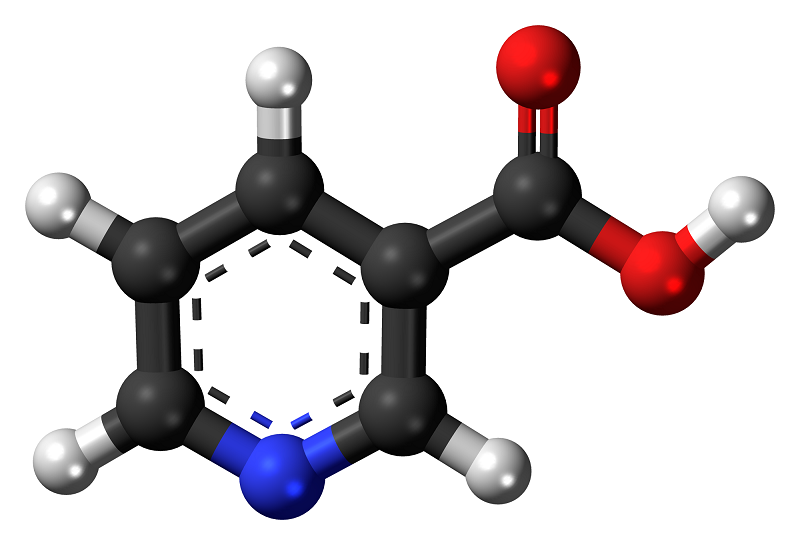
Niacin
Niacin, also known as Vitamin B3, is an important vitamin to maintain healthy blood flow. It helps the blood deliver oxygen and nutrients to every part of the body. This is especially important to hair follicles. They’re delicate things, and a slowed or stopped nutrient supply will quickly cause them to give up and stop producing hair.
Vitamin B3 is also shown to play a role in the removal of excess oil and waste from the skin. This can build up in hair follicles, blocking hair growth.
Niacin is easily available in food, as well as in oral supplements and topical treatments. Meat and fish are great sources of the entire range of B vitamins, as well as in green vegetables, particularly broccoli.
Biotin
Another member of the B family, biotin is well-known for its beneficial effects on hair, nails, and skin. In fact, it’s colloquially known as vitamin H, with the H standing for “haar und haut”. Those are the German words for “hair and skin”.
Biotin is an important fuel for cellular growth, fatty acid production, and in the body’s use of amino acids. Although clinical studies regarding biotin’s role in hair growth are not yet conclusive, there is very strong anecdotal evidence that biotin supplementation results in thicker, stronger hair, as well as clearer skin and healthier nails.
Like other B vitamins, biotin is most readily found in meat, poultry, and fish. Eggs and dairy are also a great source. For vegans, nuts and legumes (especially almonds), whole grains, and green vegetables are the best bets.

Vitamin D
Vitamin D is unusual in that the body produces it naturally when exposed to sunlight. However, modern indoor lifestyles combined with winter weather means that many people don’t get enough. Today, supplementing with vitamin D is recommended by many doctors.
Our skin and hair follicles rely on vitamin D to keep functioning, and in fact contain special receptors to process the nutrient. Hair loss is one of the early symptoms of vitamin D deficiency, but luckily it can be easily remedied.
There are few natural food sources of vitamin D. Mushrooms offer plenty, as well as animal livers (beef or chicken, most commonly), and fatty fish like salmon and tuna. The best way to up your vitamin D intake is through plenty of sunshine if possible, or supplements if not.

Vitamin E
Vitamin E is a powerful antioxidant that keeps the whole body young and healthy. By bonding with free radicals, vitamin E keeps them from interacting with our cells in harmful ways. If you keep up with your antioxidants, you’ll not only enjoy strong, healthy hair. You’ll live longer, too.
For hair, this means less chance of balding or thinning, and less chance of going gray. It also supports the immune system, protecting you from a wide range of illnesses that could lead to hair problems in future.
Aside from supplements, dairy, nuts, and green leafy vegetables are the best sources of vitamin E. Yellow cheeses like cheddar are an especially good source of the nutrient.
How to Use Vitamins for Hair Growth
Ideally, everyone would get all the vitamins they need from natural food sources. After all, the human body has existed long before pills and shampoos. We’re meant to take in everything that our bodies require through our diet.
Unfortunately, it’s just not always practical in the modern world. Maintaining a varied, balanced, vitamin-rich diet is expensive and time-consuming. Most people choose to use science in aid of their health, and use supplements.
Luckily, there are plenty of supplements available. Vitamins come in pill form, in powders that can be mixed into smoothies, or in ready-made liquid. Some vitamins even come in sublingual tablets that dissolve under the tongue, letting them hit the bloodstream almost instantly.
For hair, there’s also the unique option of topical application. Vitamins can be mixed into shampoos and leave-in conditioners, letting their helpful properties soak directly into hair follicles. If you’re looking to use vitamins for hair growth, this is one of the best tactics.
Hair Vitamins Work
However you choose to increase your vitamin levels, we hope this article has been helpful. For an individualized look at which specific vitamins might benefit your hair most, we recommend consulting with a doctor or medical professional. In the meantime, be sure to eat plenty of nutritious foods, and don’t be shy about trying some vitamin-enhanced shampoos. They really do work.


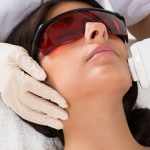
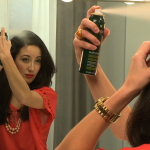


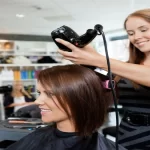
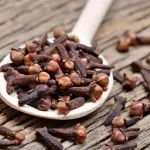
I would like to thank you first for the helpful blog! I really appreciate it. Hair fall is tragic for men and women both. When they first noticed the change in their hair they have gone crazy. Hair is the most valuable part of our outlook. As a man, I know how it feels when you don’t have enough hair on your head to cover your forehead. My hairline has gone and whenever I looked in the mirror I found my self-odd and ugly. I will be really grateful if this helps me to grow back my hair.